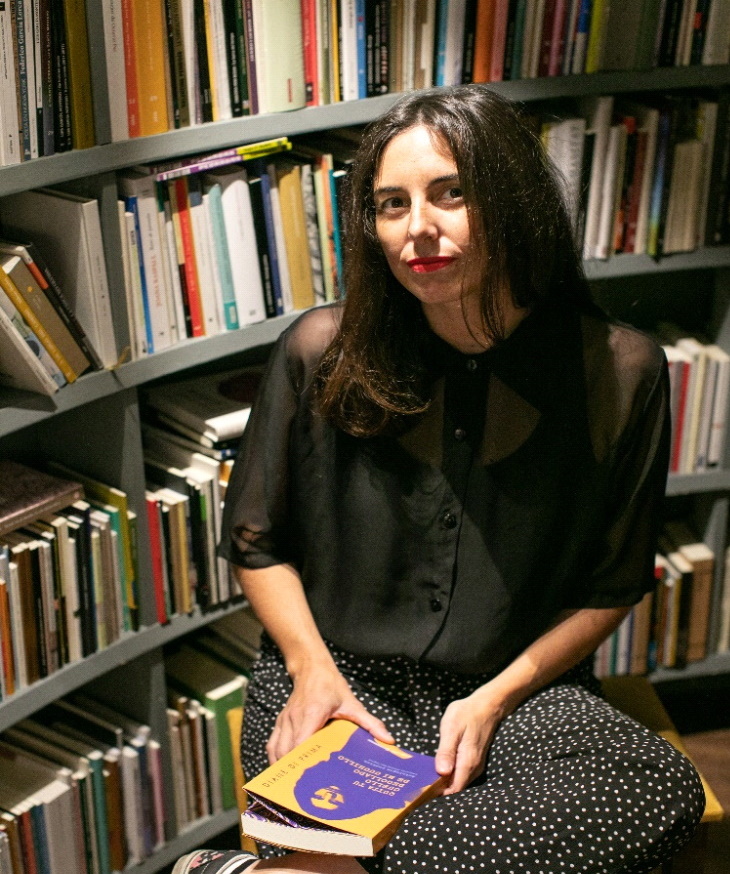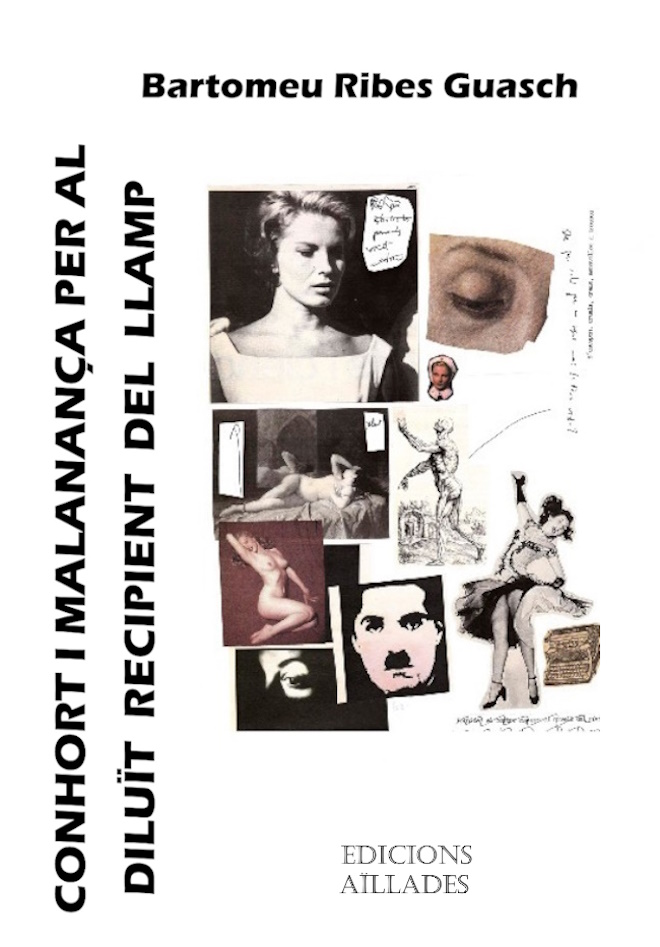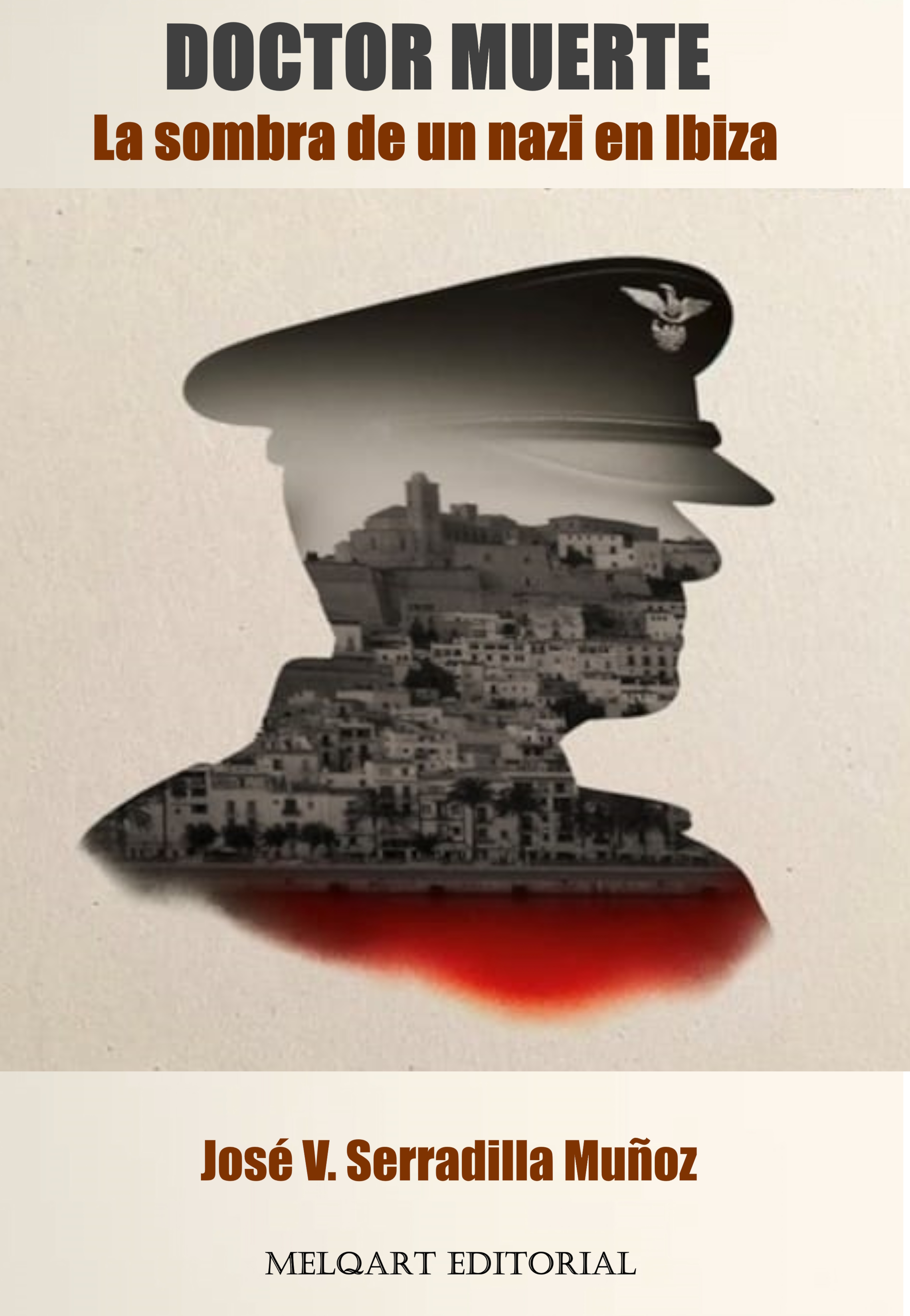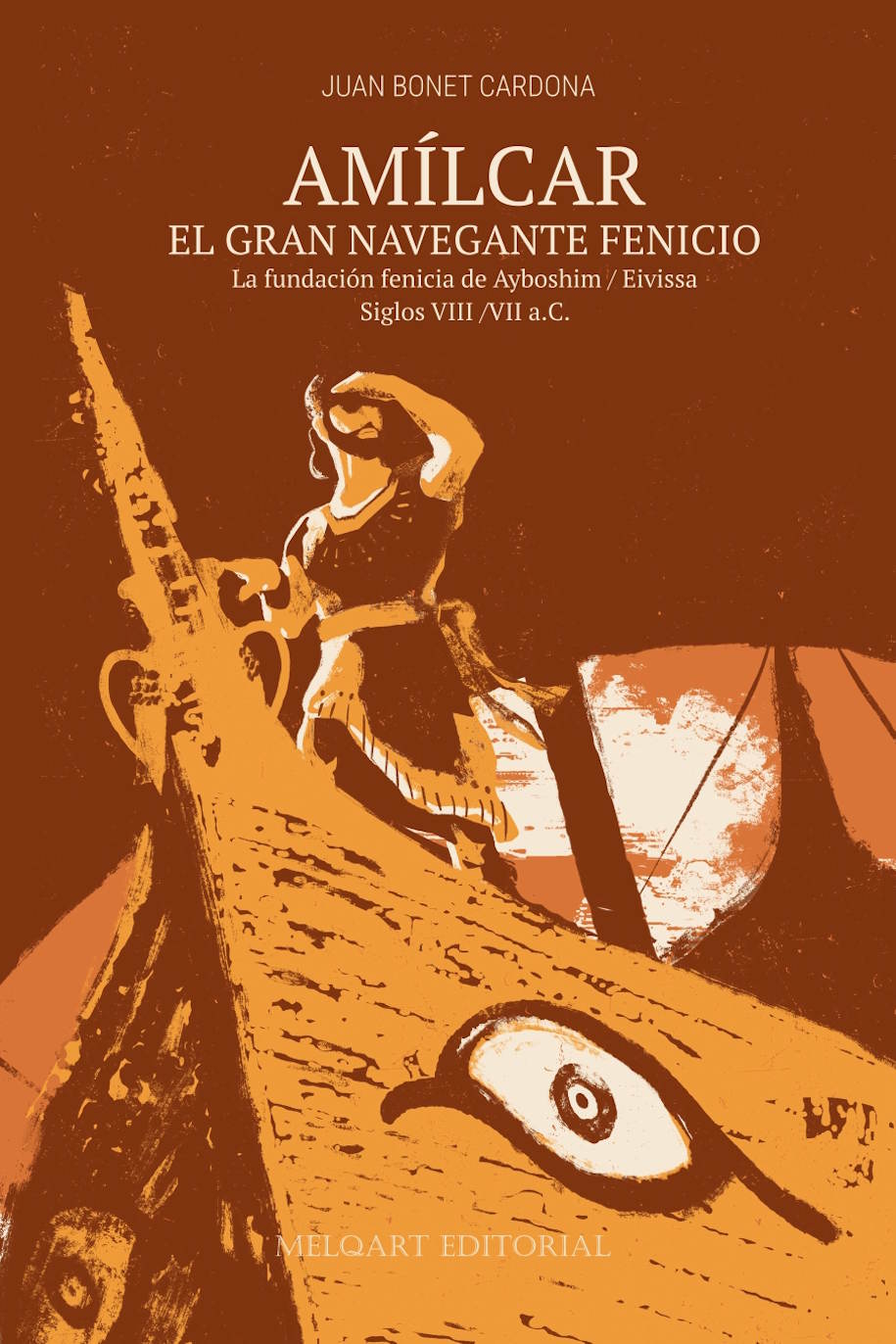MARINE ANALYSIS, translator
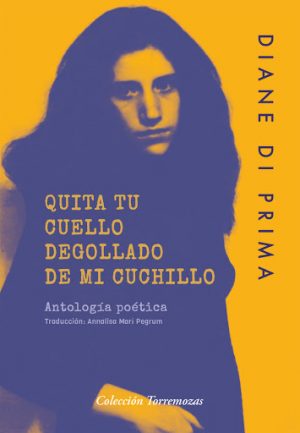 Annalisa Marí was born in Palma de Mallorca in 1983, He studied Hispanic Philology at the University of the Balearic Islands and at the University of Barcelona he also studied translation and Interpretation at the Autonomous University of Barcelona.
Annalisa Marí was born in Palma de Mallorca in 1983, He studied Hispanic Philology at the University of the Balearic Islands and at the University of Barcelona he also studied translation and Interpretation at the Autonomous University of Barcelona.
en 2015, Pegrum selected, prefaced and translated the anthology “Beat Attitude”, dedicated to the most important poets of the beat generation, It was the first poetry anthology written exclusively by the female poets of this American literary movement.. en 2019 published in Varasek Editions his translation of “Diaries of Japan and India 1960-1964”, by the American poet and writer Joanne Kyger.
This year 2021 has published in the Torremozas publishing house the anthology “Remove your slit neck from my knife”, a bilingual anthology that covers more than fifty years of literary production of the poet Diane di Prima and that includes for the first time in Spanish «Estufa de laton que se apaga», a series of poems written after her abortion in 1960.
Tell us what it has meant to you to bring together the literary production of Diane di Prima in "Get your throat cut off my knife".
For me, Being able to put together the first anthology in Spanish by an author as radical and revolutionary as Diane di Prima has been a dream come true.. Being a literary translator allows me to try to fill the editorial gaps that I consider inexplicable around certain authors whose literary quality seems undeniable to me. In addition to having created prolifically for over fifty years, Diane was a generous editor, teacher, translator, cultural agitator and mother of five children. His work deserves to be read and, although society has accustomed us to self-boycotting our own successes, The truth is that I am very happy to have been the first to translate this selection of poetry into Spanish and, above all, to have been able to enjoy their correspondence these years.
Diane of Prima, she was a woman with a great political and spiritual conscience, In what way did you unite the spiritual and political part with the intimate and costumbrist part in your poetry??
On the one hand, there is the intimate and traditional part, that permeates his first poems, those she wrote in New York City in the 1950s and 1960s, which the author calls her time of “artistic activism”. It's not that he didn't have political and social concerns., but as she herself admits, Being an activist was impossible due to the current situation (remember that the communists were persecuted, that they had just executed the Rosenberg couple accused of espionage, that the FBI was knocking on the door of Diane and her friends incessantly…) It was in San Francisco, a partir de 1969, when Diane joined the revolution and began her time of “political activism” (the collection of poems "Cartas Revolucionarias" is a clear example of this.). Nevertheless, at the same time he also began to write "Loba", an epic and feminist work that mixes the intimate with political and spiritual awareness. I believe that all these aspects are intertwined throughout all his work..
Diane also wove her literary production and focused on issues as important as menstruation, abortion and motherhood. We are lucky to be able to read some poems that talk about abortion in "Get your throat cut off my knife". Some of his poems on abortion were published in those years in which, in addition to being prohibited, it was a taboo subject. What impact did it have?? And why do you think its publication is important in our times??
Diane di Prima wanted to be a single mother at a very young age (A los 21 years). A few years later, she became pregnant again by a man who pressured her to have an abortion.. Dejected and against her will, Diane went to have the abortion alone. When he returned home, he locked himself in and, anima por la benzedrina, composed the long poem in twelve parts "Brass furnace that goes out. Song, after an abortion. As abortion was illegal at the time and could lead to prison sentences for both her and her abortionists, Diane did not seek to publish this poem. It was only ten years later, en 1975, that a friend saw his potential and, against their will and secretly, sent it to a publisher. Diane suddenly found herself with that published poem, and broke the friendship with that "friend". The poem remained in the "underground" circuit and years later it was manipulated by the anti-abortion right to condemn abortion.. horrified, Diane ordered these poems to be published no more.. en 2018, when we talk by email, Diane still did not want these poems published for fear that they would be misinterpreted.. I promised him that I would explain all this in the prologue and begged him to let me translate them., since they seemed unique to me and I thought they could help women who had gone through the same thing. Happily, I agree.
The impact it had on 1975 It seems reduced to me because access to its reading was limited. Nevertheless, It is enough to search the internet a little to realize that there are countless translations copied and pasted over and over again.. It is a sign that this poem is necessary and valuable to many people..
It seems important to me that this poem continues to be published because the misrepresentation of the anti-abortion right should not intimidate the readers who have indeed faced this experience and need to share it.. Breaking the taboo on this topic is a way of saying "we decide", a form of empowerment.
Why do you think Diane's work did not have as much impact as her peers??
I think that her work did not have as much impact as her contemporaries because Diane was a rare bird who refused to limit herself to the molds of any doctrine or movement.: the labels corseted her and she preferred to be free. Ser underground, bisexual, women, anarchist, zen… and reject the marketing that other writers of his generation embraced, resulted in his exclusion from the literary canon for a long time. Luckily today all kinds of translators, editores, historians and academic researchers are analyzing and trying to publicize his work. (As an example the pioneer "Female Beatness", by Natalia Carbajosa and Isabel Castelao) which constitutes the first academic study in the Hispanic world of authors of the beat generation and analyzes the early work of Di Prima).
On a personal level, do you have any other literary project in mind??
I have a folder full of poems that I would like to see the light of day. And ideas of books that have been around me for a few years. I also want to continue translating unknown authors in the Spanish-speaking world, There are so many I don't know where to start! Having three young daughters makes it hard for me to find time for my projects, but hopefully I can be inspired by Diane di Prima who, with five children in tow, never stopped studying, READ, write, translate and edit.
By Elisabet Fabregas
ILLES.CAT
Online literary platform






